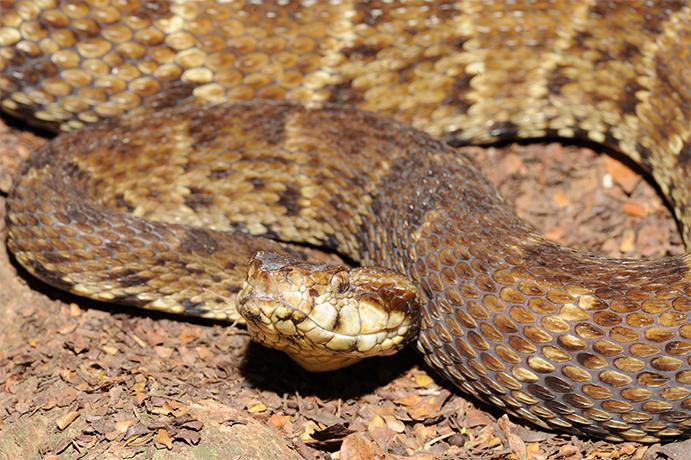Highlights
Crotalphine as a drug candidate
for the control of EAE
Initial results have indicated that crotalphine, in vitro, decreases microglial reactivity, protects against IFN-γ+LPS-induced demyelination and increases Myelin Basic Protein and Myelin Oligodendrocyte Glycoprotein immunoreactivities. These results suggest a possible myelination activity for this peptide, and therefore, a possible effect on neurodegenerative diseases. To investigate these effects, we have been using an experimental model of multiple sclerosis (murine autoimmune encephalomyelitis model – EAE). In this model, hypernociception is detected on the 4th day after immunization, while the onset of motor disability occurs in the 10th day. Crotalphine, administered in the 5th day, induces partial reversion of EAE-induced hyperalgesia, when compared to saline-treated animals. This effect was maintained up to the 10th day. In addition, crotalphine significantly decreased the intensity of clinical signs. Therefore, we suggest that crotalphine can be an important drug for the control of EAE. The patent regarding this data was applied at INPI, in October 2016.
